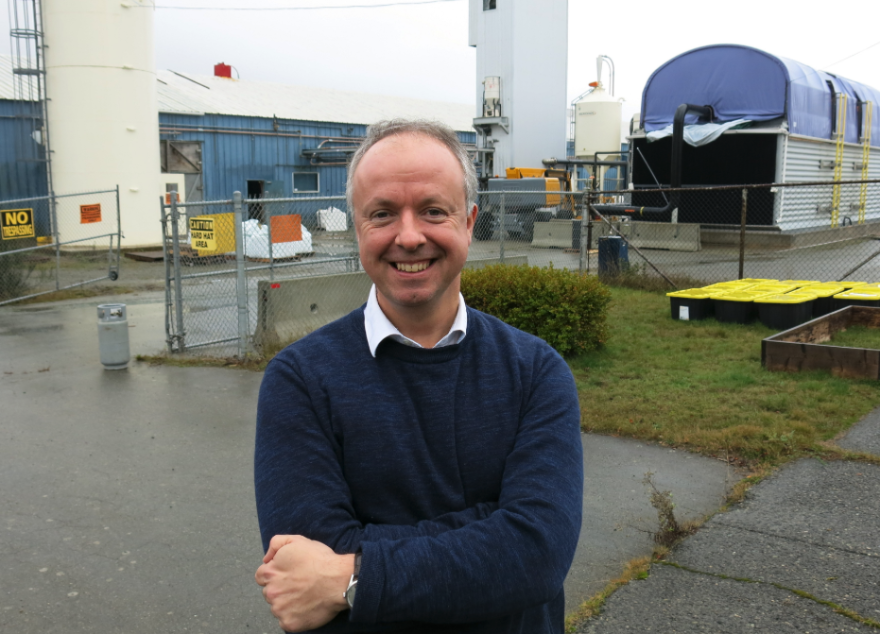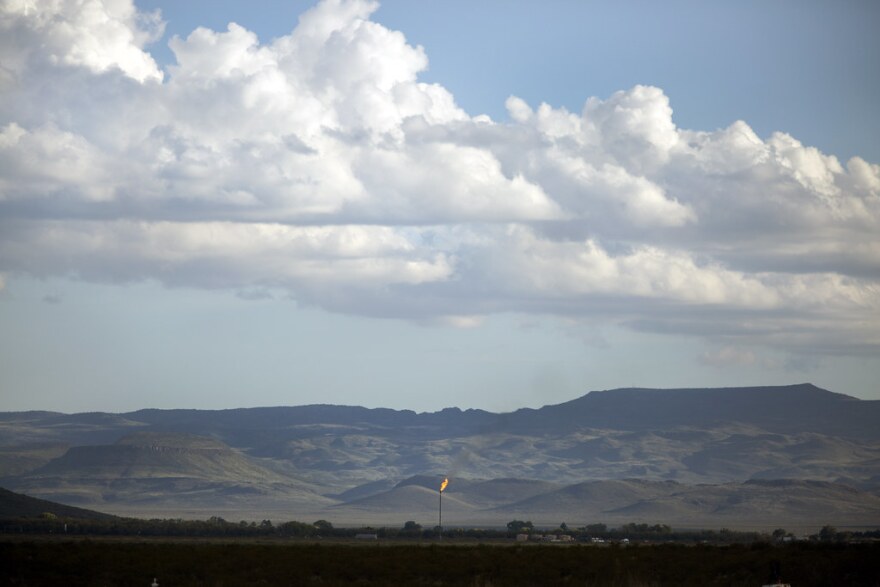Experts say carbon emissions need to be reduced and even removed from the atmosphere to avoid catastrophic climate change. Could carbon-neutral oil be a part of that? One company setting up shop in the West Texas oilfields says yes.
The Canadian firm Carbon Engineering recently announced a partnership with oil giant Occidental Petroleum to create what they say could amount to a carbon-neutral oilfield. The plan is to build a facility in the Permian Basin to filter carbon dioxide out of the atmosphere. The oil company will then pump that CO2 back into the earth to force more oil out of the ground, in a process called enhanced oil recovery.

Simply put: It would replace the oil in the ground with atmospheric CO2. If the process can be accomplished without extra emissions, the companies say, the oil that’s produced can be considered carbon-neutral.
KUT spoke with Carbon Engineering CEO Steve Oldham to learn more.
This transcript has been lightly edited for clarity.
_____________________________
KUT: I think a lot of people don't understand that CO2 is used in this oil recovery right now. Where does it come from now?
Steve Oldham: Today, you would either use CO2 from a natural source. There is naturally occurring CO2 in the ground. So, you drill to extract the CO2, and then you inject it into a well in another location. The second source is to capture it from something like a cement plant.
The problem with both of those two sources is you need a pipeline. You need to get the CO2 from where it's captured to where it's used. And the second problem is that it's not carbon negative.
KUT: One of the big challenges with the kind of work that you do is that it's energy intensive. Where do you propose getting that energy for this project?
Oldham: It's not as energy-intensive as you may think. As a step in the process, we have to heat up calcium carbonate. We heat it up today using natural gas. Natural gas is obviously available in Texas. Any emissions of natural gas are captured as part of the process. So, our plant is emission free.
KUT: In the Permian Basin where you're planning this, natural gas is a byproduct of oil production. People are flaring it off. It’s sometimes trading for negative prices. Is there a plan to try to find natural gas that wouldn't be going to market to benefit this operation?
Oldham: Yeah, clearly that's a large part of our thinking. Natural gas is a readily available resource. Our primary focus as a company is [the] environmental benefit. So, while natural gas may be cheap and available, it has a carbon footprint. So we prefer – and we intend – to go to renewable electricity.
But in in the near term, natural gas, for the reasons you just said, is a great way for us to start.
KUT: What's the timeline?
Oldham: We're looking at a 2022 operational date for the first plant, and then we want to repeat this model in many other locations. You know, while this first Occidental plant is focused on enhanced oil recovery, we think there is a huge market opportunity – especially in Texas – for capturing CO2 in the atmosphere and simply burying it back underground where it came from.
There are many industries [and] governments that are challenged to decarbonize. And the idea of offsetting emissions from an industry that's hard to decarbonize by doing atmospheric capture and then burial is a very powerful tool.
KUT: What are going to be some of your biggest challenges?
Oldham: We have a fully working plant here in British Columbia, but scaling up is always a risk.
Other than that, we're confident of the technology and confident of the price.
KUT: The price you think you'll get this CO2 for is competitive with whatever it would be to obtain it in more traditional ways?
Oldham: No. Our capture of CO2 is more expensive than drilling a hole in the ground, then pulling out the CO2, or capturing it from a CO2 rich emission from a cement plant.
But what you eliminate is the pipelines. You also have a significantly better environmental benefit.
KUT: I've heard some people say, "This is kind of like self-driving cars. You hear a lot about it, and there's this great potential, but be careful; this technology is not a sure bet."
Clearly, your position is that it is.
Oldham: Yeah, I think what you say was true in perception. We've worked pretty hard over the last 12 months to demonstrate that our technology is ready for market.
As I said earlier on, there's always a risk. Some people will always say, "Well, it works in small scale, but can you demonstrate it working in large scale?"
So, we'll do that with this first plant. We're very confident of it. And then it will be ready.
KUT: Is this just a way to throw a lifeline to carbon-based fuels when, really, we need much more stringent regulation to completely phase them out? I'm sure that's a criticism you've heard before it. How do you reply to that?
Oldham: Yeah, we need to transition away from carbon-based fuels. But that's a tremendously difficult thing to do. So, if we are able to buy ourselves more time by using fossil fuels but decarbonizing them, why wouldn't we do that?
[This project] does two things. It allows us to decarbonize fossil fuel. And the second thing it does is demonstrate that our technology for pulling CO2 out of the air is a viable tool to decarbonize any industry.






